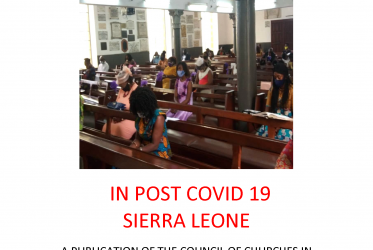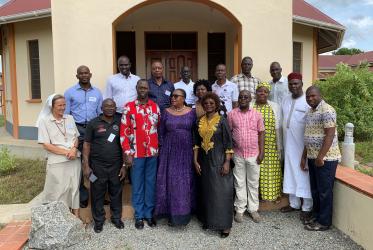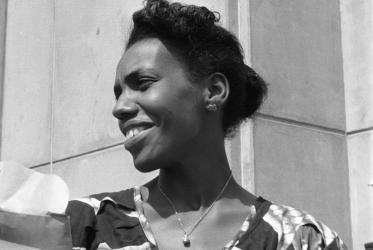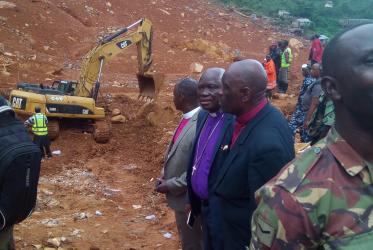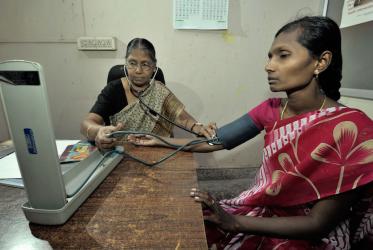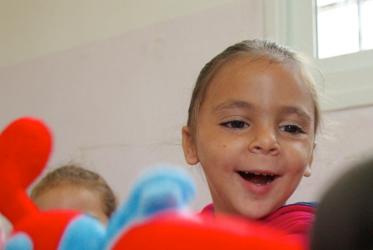Displaying 1 - 20 of 26
New student body at Bossey Ecumenical Institute “a source of joy”
14 September 2020
WCC commemorates life of Bishop John K. Yambasu
21 August 2020
Young Africans are eager to grapple with challenges
09 January 2020
A tribute to Rev. Dr Rena Joyce Weller Karefa-Smart
21 January 2019
Doing his best without being the best
07 September 2018
“Good healthcare a right, not a privilege,” says WCC-EAA
11 October 2017
“It’s time to be brave, to form diverse partnerships”
02 March 2017
“Health and healing for all people, that is the challenge”
28 February 2017
Preventing incitement to violence which could lead to atrocity crimes in Africa
09 - 11 May 2016
Addis Ababa, Ethiopia
